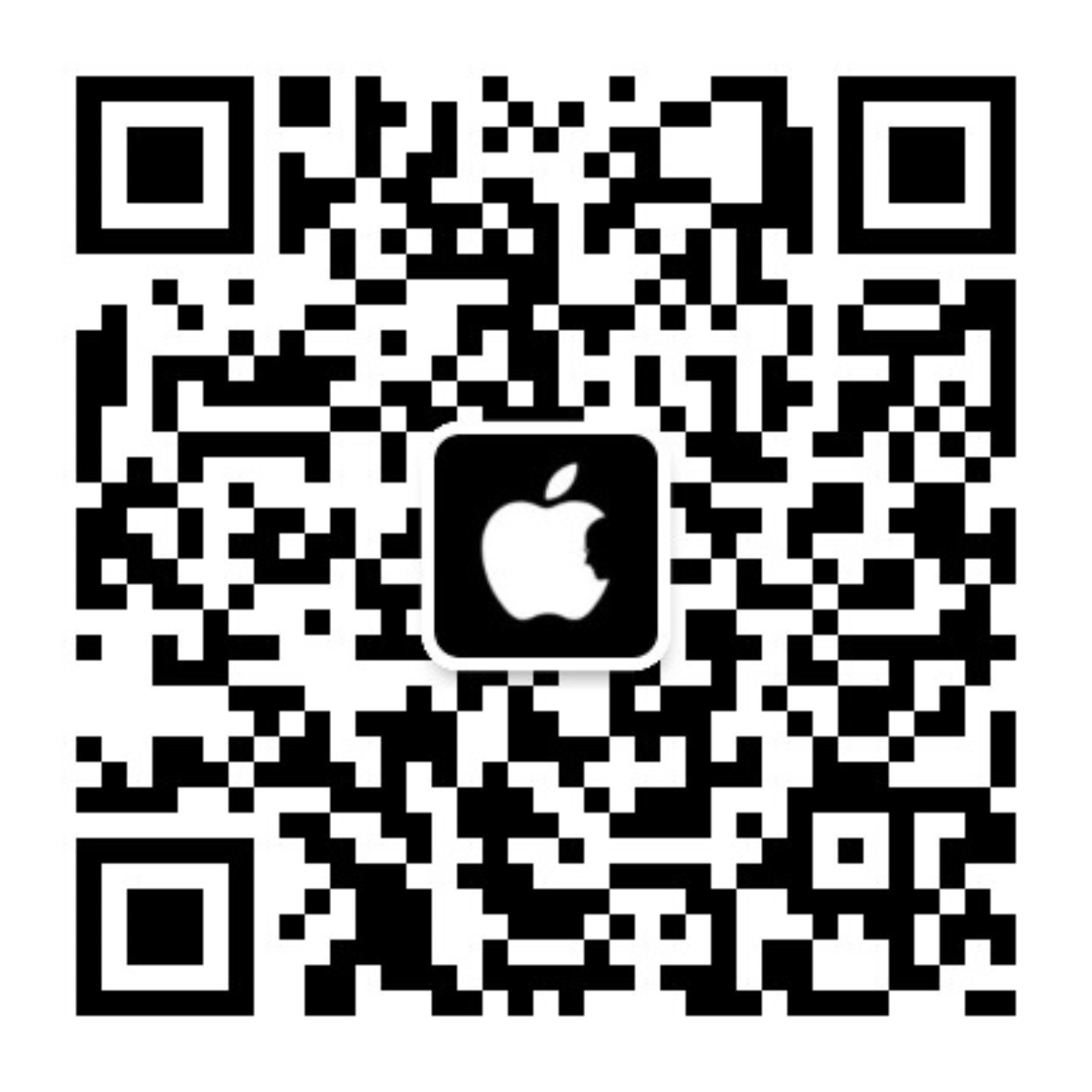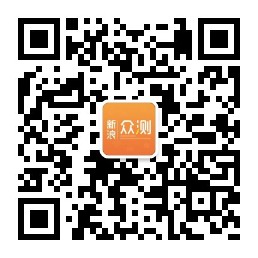An iPhone without WeChat is a super expensive "electronic brick".
Google Since quitting China in 2010, it has not returned to China, Facebook Mark Zuckerberg, CEO of, Amazon Having worked in China for more than ten years, he still announced to withdraw from the Chinese e-commerce market last year.
Among the four largest technology giants in the world, only Apple It still maintains a huge Chinese market. However, Apple's position in the Chinese market seems to be in jeopardy.
1. IPhone without WeChat
President Trump of the United States has been full of tricks recently. First, TikTok was attacked, and then an administrative order was signed: from September 20, American companies were prohibited from tencent Its WeChat applications have business contacts.
In the future, WeChat is likely to be removed from Apple's or Google's App Store.
WeChat has more than 1.2 billion active users every month in the world. It is not only an important tool for Chinese Americans to communicate with their Chinese relatives, but also a key tool for most companies and investors in Silicon Valley to maintain business relations in China. In China, WeChat is ubiquitous. In addition to the most basic communication function, people also use it to spend time, watch the circle of friends, watch the news, take a taxi, order takeout, shop, visit the government for consultation, and so on.
WeChat has established a huge and mature ecosystem. Especially in China, WeChat has already become a part of people's daily life. A smartphone without WeChat can hardly be counted as a smartphone.
"An iPhone without WeChat is a super expensive 'electronic brick'," said Mr. Ou, a user in Hong Kong, China. In Mr. Ou's opinion, WeChat is one of the most important software on his mobile phone.
2. "Old Chinese friends"
Unlike the hypocritical "China's good son-in-law" Zuckerberg, Apple CEO Tim Cook can be called a more honest "old friend of China".
Under Cook's management, Apple can have today's trillion market value, which is inseparable from the company's development in China. As Cook visited China again and again, more and more iPhones were produced in China, more and more iPhones were delivered to Chinese consumers, retail stores were opened one after another, and research centers were also located in Beijing, Shenzhen, Shanghai, Suzhou and other major cities.
 Figure 2: Apple retail store in Pudong, Shanghai
Figure 2: Apple retail store in Pudong, Shanghai More than three years ago, Apple spent more than 500 million dollars to build two more R&D centers in Shanghai and Suzhou, China. Apple said that the company has good reasons to make this investment: "Apple's R&D center in China aims to train technical experts in Apple's supply chain, as well as graduates from Peking University, Tsinghua University and other colleges and universities. Apple will continue to develop and invest in China, and we will continue to cooperate with various colleges and universities to launch internship programs to train the next generation of entrepreneurs..."
Apple also said that through this or that cooperation, the company not only directly employed 12000 employees in China, but also "created and supported" 4.8 million jobs, including 1.8 million iOS application developers.
Cook's goodwill to China is not limited to throwing money, but more importantly, cooperation.
In 2017, after Apple removed a series of apps from its app store in China, Cook explained: "We don't want to remove these apps... but we should also comply with local laws and regulations. We firmly believe that legal participation in market activities and bringing benefits to local consumers are in the best interests of local consumers, not only in China, but also in other countries. ”
In the same year, in response to the requirement of localized data storage, Apple announced that it would cooperate with Guizhou on cloud to operate Apple's iCloud service in China. Despite the opposition, Apple did not leave like Google many years ago. Cook said: "Even if there are differences sometimes, cooperation with the local government is very important."
3. IPhone Manufacturing Center
Cook's efforts were not in vain.
Most iPhones are made in China. According to Apple's data, Foxconn's factories in China alone will expand from 19 in 2015 to 29 in 2019. As Apple has added product lines such as smart watches, smart speakers and wireless headphones, these production plants are also increasing. Apple does have some OEM factories outside of China. However, these overseas factories are relatively small, mainly to cope with local import taxes and meet the needs of the local market.
 Figure 3: Number of Apple assembly plants in the world
Figure 3: Number of Apple assembly plants in the world China, known as the "factory of the world", is crucial for Apple to reduce inventory and increase potential profits.
Before taking over Jobs, Cook was the chief operating officer. He pushed for instant manufacturing. Close the factories and warehouses around the world, and establish a solid cooperative relationship with the OEM factories, most of which are in China, such as Foxconn, Hoasus, etc.
The Atlantic Monthly in 2012 was surprised by Apple's ability to turn over its inventory every five days. With a small amount of inventory, Apple has been able to release, manufacture and deliver millions of iPhones globally in an orderly manner. Apple has created a myth of instant manufacturing with practical actions.
But Cook knew that China's manufacturing center helped him create such a myth.
But just in time manufacturing can't stand the challenge. Without Chinese factories, Cook's myth could not be written down.
The epidemic at the beginning of this year is a proof.
Foxconn is one of Apple's largest foundries. During the outbreak at the beginning of the year, Foxconn's factories in China had to stop operating. This shutdown has disrupted Apple's entire supply chain, and even Apple may have to postpone the release of the iPhone 12 series this fall.
In the past, Apple's new iPhones were shipped in succession at the end of September. This year, according to people familiar with the matter, the new iPhone may be shipped several weeks later than usual.
In fact, since 2018, under Trump's farce of "moving Apple manufacturing plants back to the United States" and "levying tariffs", Apple has tried to disperse manufacturing plants, such as producing iPhones in India. But the result is not ideal 。
As Dave Evans, CEO of Fictiv, a San Francisco supply chain company, said, after all, except for China, "no country in the world has such infrastructure that it can produce 600000 mobile phones in one day."
Cook, who understood the situation, also admitted in an interview this year: "The supply chain problem is only temporary. Apple will not leave China. There may be some adjustments, but not fundamental changes."
4. $44 billion market
On a par with the iPhone manufacturing center, China is also Apple's second largest overseas market, after Europe. The enthusiasm of Chinese consumers for iPhone and other Apple products has been obvious to all in the past few years.
The expected annual product conference, queuing up late at night to buy new iPhones, etc
 Figure 4: The launch of iPhone 4S in Beijing and Shanghai was delayed due to crowding
Figure 4: The launch of iPhone 4S in Beijing and Shanghai was delayed due to crowding According to IDC data, Apple has sold 210 million iPhones in China in the past five years. In addition, according to QuestMobile, as of June, one fifth of China's smartphone users used the iPhone, second only to Huawei (26%).
In the last fiscal year, Apple's sales in Greater China were close to $44 billion, accounting for 17% of the total revenue. At its peak, the sales in Greater China once accounted for 25% of the company's total revenue. In the third quarter financial report released at the end of July, the revenue of Greater China also accounted for 15% of the company's total revenue.
Although ranking behind the European and American markets, Apple still has huge development space in the Chinese market - the smartphone market share is only about 9%, lagging behind Huawei, Vivo, Oppo and millet Etc. In contrast, the growth of Apple's iPhone and Mac series in Europe and the United States has basically stagnated.
When the golden age of the hardware market has passed and software has become a new arena, software services have gradually become Apple's future development strategy. The potential of the Chinese market is still considerable: in April alone, Chinese consumers spent up to $1.53 billion on the App Store, which does not include other Apple software consumption, such as iCloud or Apple Music subscriptions.
However, the supply chain problem can be said to be temporary, but the real problem: Apple's iPhone sales growth in the Chinese market has declined significantly, which cannot be ignored. Apple fans have lost their enthusiasm for the annual new product launch, and more and more users prefer to choose domestic mobile phone brands such as Huawei.
The epidemic situation is even worse. Due to the interruption of iPhone production and the forced closure of Chinese retail stores, Apple adjusted its revenue forecast for the second quarter in a rare way in January to reflect "the uncertainty of demand for Apple products in the Chinese market due to the impact of the epidemic" - this is the first time Apple has lowered its revenue forecast in 16 years, indicating the importance of the Chinese market for Apple's overall earnings. (The financial report of the second quarter of 2020 also shows that the revenue of Greater China has declined year-on-year, from US $10.218 billion to US $9.455 billion.)
This is not the worst. With the growth of the European and American markets stagnating, the growth potential of the Chinese market has increasingly become the focus of investors.
As the release time of iPhone 12 is getting closer, Apple is particularly looking forward to the new flagship products to rekindle the consumer enthusiasm of the market, especially the Chinese market. It is expected that the iPhone 12 released in October will also be Apple's first smartphone that supports 5G functionality, which is expected to help Apple attract more potential consumers in the Chinese market. For example, Mr. Han, a businessman from Shanghai, said that he has always planned to acquire an iPhone to replace the Huawei mobile phone that has been used for a long time.
But after hearing about the WeChat ban, Mr. Han wanted to change his mind.
"I'm worried that WeChat will not be available on iPhone in the future. This will seriously affect my work, because 90% of customers and colleagues communicate through WeChat, "he said.
If the Chinese market is really lost in the future, Cook can't sleep well.
5. If WeChat really goes off the App Store
So far, the Chinese market has been able to defend.
In the last three quarters, the revenue in Greater China showed a small increase of 2%. Cook answered analysts' questions in the subsequent financial report conference call and said: "At the current exchange rate, our growth should reach 6%. The iPhone 11 is the highest selling mobile phone product in Greater China, and also the best-selling product in Chinese cities... The iPad business in the Chinese market, like other regions, benefits from remote office and online learning; Mac business also achieved strong double-digit growth; In terms of services, new sales records have been created... Specifically, new users account for three quarters of Mac buyers in the Chinese market; Two thirds of iPad buyers are new users. "
The Chinese market is about to rebound strongly. However, Trump's executive order has made happiness leave so quickly. Apple's share price fell 2.5% immediately after the news. Within a few hours, the market value of the world's most valuable company has evaporated by tens of billions of dollars.
Although the wording of Trump's executive order is ambiguous at the moment, and the U.S. Department of Commerce will have 45 days to explain the scope and implementation of the ban, the impact has already occurred and anxiety has spread.
Tencent executives, the parent company of WeChat, said that they believed that the ban was only applicable to overseas WeChat in the United States, and was unlikely to affect WeChat in China. However, Tencent executives also added that they were waiting for more specific regulations.
Even though the future fate of WeChat on iPhone is still unknown, many Chinese iPhone users have made a good choice in their hearts.
Mr. Chen, a user in Chongqing, is a loyal user of Apple. Since the first iPhone was purchased in 2008, an iPhone has been replaced every year. But he also said, "If Apple removes WeChat from the app store in China, I will choose Huawei."
"WeChat is indispensable in China and an important part of people's daily life," he said. He also added that the quality of domestic smart phones is not bad at all, and it is not difficult to give up iPhone.
Mr. Chen is not alone. according to Sina micro-blog An online poll was launched, "If WeChat is no longer available on iPhone, do you choose to change your phone or uninstall WeChat? ”By the end of the survey on August 14, a total of 1.31 million microblog users had participated in the survey, of which 1.23 million chose to "change their phones".
Of course, Google, like Apple, is also an American company and will be subject to the ban. However, Google Play itself is not available in China. Android users in China can download and update WeChat from other channels no matter what. "But iPhone users are not so lucky," said Liu Shifang, a senior smartphone analyst in Taiwan. "If Apple is forced to remove WeChat from the app store, iPhone sales will be affected, especially in the Chinese market."
Considering that the WeChat ban will take effect in September, "this may affect the sales of Apple's new 5G iPhone in the Chinese market," Liu Shifang added.
Not only in the Chinese market, Apple's popularity in the world will also be damaged by the WeChat ban. Any enterprise with business in China will have to use other methods to maintain communication with WeChat users.
Mr. Liao, the product manager in Taipei, said that they might choose to buy other brands of mobile phones, such as Xiaomi and Oppo. He said that they rely on WeChat to communicate with mainland suppliers. If WeChat is not available on the iPhone, it will be very troublesome.
Guo Mingxuan, a famous analyst, said that if Apple was forced to remove WeChat from the global app store, the company's annual iPhone shipments in China would plummet by 25% to 30%. The shipments of other Apple related hardware (Apple Watch, iPad, AirPod, Mac laptop, etc.) will also be reduced by 15% to 25%.
too horrible to look at!
6. Download WeChat before it's too late
Will WeChat really be removed from Apple's global app store? Different experts have different views.
"Trump's administrative order against Tencent mainly focuses on WeChat used by American users," said Wendy Wesso, an American sanctions expert.
But Harry Clark, another lawyer who focuses on the field of export control, doesn't think so. He said that since Apple and other American companies are also classified as "American legal persons", unless the administrative order is revoked or modified, Apple may be forced to remove WeChat from the global app store.
Ironically, just after the executive order was signed, the stock price of Apple, an American company, fell sharply and its market value evaporated by tens of billions; However, the number of WeChat downloads of banned objects has increased significantly.
According to the data of the market research company Sensor Tower, after President Trump threatened to disable WeChat, more and more users in the United States chose to download WeChat and other alternatives, hoping to install the app before it was taken off the shelves from major app stores.
According to the statistics of Sensor Tower, the average number of WeChat downloads in the United States in the last six days was 41% higher than the week before the ban was announced last Thursday.
Some WeChat users chose QQ, another instant messaging application under Tencent, because the ban did not explicitly cover the latter. QQ app downloads in the United States have also tripled in the past week.
Thanks to Trump, QQ, which has not been the boss for many years, returns to the stage.























